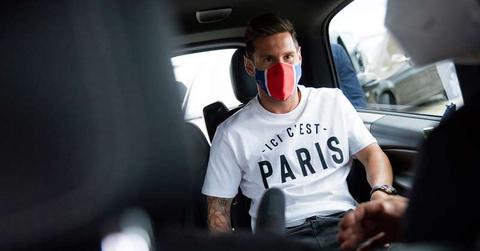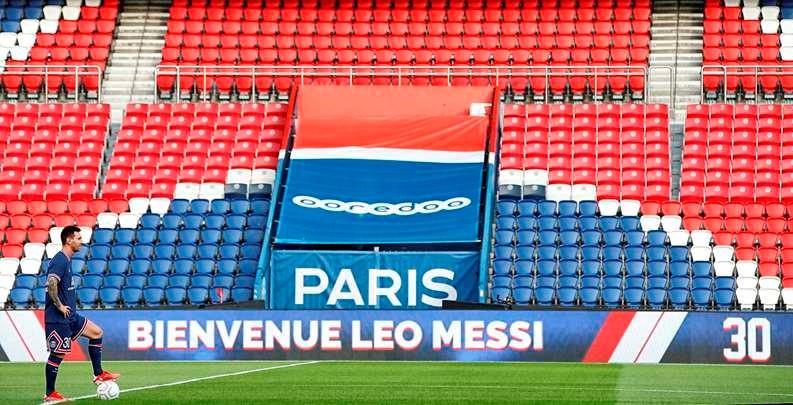Paris Saint-Germain Is Funded By Its Government Owner—It Isn't France
With Lionel Messi making his way to Paris Saint-Germain, let's take a dive into who funds the wealthy PSG team. Which government owns the football club?
Aug. 11 2021, Published 12:26 p.m. ET
Lionel Messi practically shifted the tectonic plates of sportsdom when he announced his departure from FC Barcelona—a Spanish professional football club that he has been a part of since the beginning of his professional career. Now, Messi is moving to Paris Saint-Germain (PSG)—a team backed by a surprising owner.
Who owns Paris Saint-Germain? More importantly, how—and why—do they inject so much capital into a comparatively young European football team?
PSG was born as a fusion of two teams.
Most international Division 1 football teams started in the 19th or early 20th centuries. However, PSG didn't get its start until 1970—way later than its peers. The team started as a merger between Paris Football Club and Stade Saint-Germain. The initial blast into Division 1 lasted just two years before the team fell to Division 3.
PSG started winning trophies in the 1980s and has been on an up-and-down journey since.
Qatar Sports Investments owns Paris Saint-Germain (PSG)
The Qatari government opened the state-owned QSI (Qatar Sports Investments) to help fund the nation's sport, leisure, and entertainment industries. QSI is a closed shareholding subsidiary of the Qatar Investment Authority—a sovereign wealth fund whose primary goal is to diversify the country's assets to help with domestic improvements.
The oil-funded QSI bought PSG in 2011, which made the Qatari fund the primary shareholder for the football team. Tamim bin Hamad Al Thani, Qatar's head of state, is the official owner of PSG.
Why did Qatar buy PSG?
About a decade ago, the Qatari government decided that it needed to diversify its international portfolio. It did so by investing heavily in PSG.
Qatar poured about $1.25 billion (€1.075 billion) into PSG over the course of five football seasons. This really changed the team's fate, especially after the previous owner Colony Capital left PSG in a difficult financial position.
The 2022 FIFA World Cup has a lot to do with it, too
Qatar is set to host the 2022 FIFA World Cup next year. The nation beat out the U.S., which vied for the spot against Qatar. It isn't just international portfolio diversification that led QSI to PSG. It's also a sweeping and expensive marketing initiative to position Qatar as a nation that respects, appreciates, and understands good football.
Risky financial moves have brought attention to PSG since the Qatar takeover
Qatar actually invested more than the bulk payment of $1.25 billion because the country included two retroactive payments of $117.3 million (€100 million) and $234.6 million (€200 million) for the 2011 and 2012 seasons.
Qatar valued PSG at $234.6 million (€200 million) annually and backdated the valuation to earlier seasons to cover the payouts.
Qatar made this move to make it look like PSG owners weren't spending more than the team was making, which the UEFA (Union of European Football Associations) doesn't allow.
Thiago Silva signed on to PSG in 2012 and made $49.2 million (€42 million), which made him the world's most expensive defender at the time. UEFA ultimately halved the value of the Qatar-PSG deal, put the team in a deficit, and instituted consequences like a $70.3 million (€60 million) fine.


